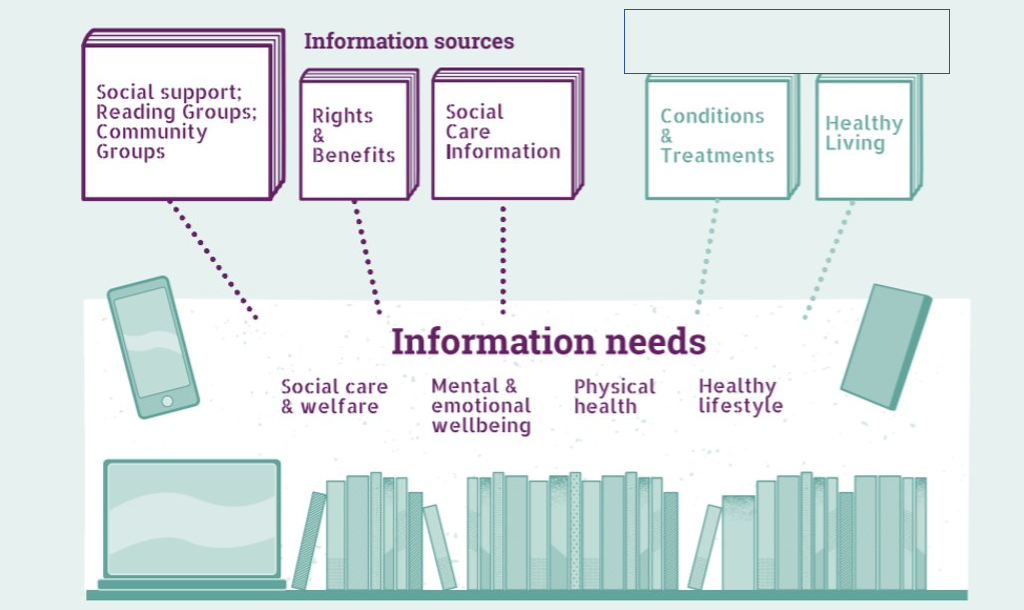To support people with health information it is important to understand what information is needed.


| Tap each title to expand. Work through each section in numerical order |
To support people with health information it is important to understand what information is needed.

Each person will have different information needs. It is important to establish what they are looking for. For example, this might be information about:

The people you come into contact with will all have different health and wellbeing needs as this diagram illustrates. These may relate to their:

In the "Good conversations and empathy" module, you learned about questioning techniques (see section 4) You know it is important to:
|
 |
 Workbook Exercise
Workbook ExerciseDraft a few questions to ask Karen, using appropriate questioning techniques.
Remember you may need to ask her probing or clarifying questions to identify what she needs.
Your questioning identifies that Karen wants to know:
You will meet Karen again in the Resources section of this module, where you will learn how to identify resources to meet her information needs.